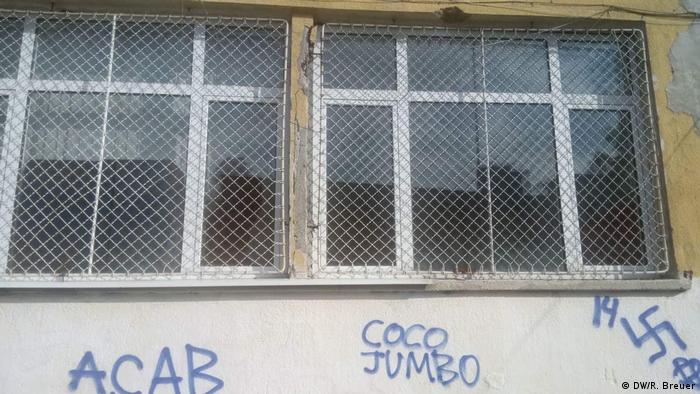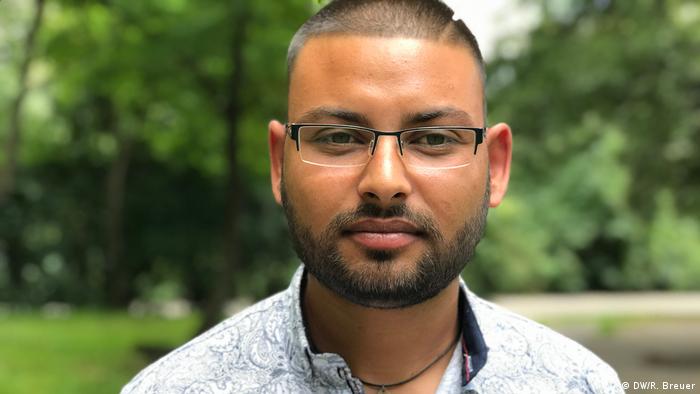Almost a third of the Roma children in the EU country, Bulgaria, to go to schools where all students belong to this minority – a result of exclusion and rejection. Rayna Breuer has visited a Roma school in Sofia.

Irena Tsukeva shows a wall with lots of pictures covering a huge hole Verde. The paint on the radiator is peeling, the door frames go out of the glue. “We are currently renovating the school. We have only a few days until the start of School,” says the headmistress. But she is optimistic that everything will be ready in time. After all, the school sorted books already neatly and stacked and, in some classrooms, only the last line is missing. The outside facade does not need a new color, but because the old one peeled off is: “you see swastikas, insults, graffiti. We afterwards come to clean the walls,” says Irena Tsukeva. “The young people from the neighborhood that visit our school.” Because 98 percent of the pupils are Roma. But Tsukeva, which is associated for 40 years as a student and a teacher with the school, and the institution for 15 years, knows of other times: “in the beginning of the 2000s, a new law was passed that allowed parents to school their children themselves. Our school was attractive for the Roma families from the neighbouring district, but by the other families in the neighbourhood sent their children to other, more Central schools.” With the time I developed the school to a purely Roma school.
This is in Bulgaria not an isolated case. According to the EU Agency for fundamental rights, the proportion of Roma children in Bulgaria, an all-Roma school has risen, in five years, from 16 to 29 percent. This is the highest value of nine southern and Eastern European countries, which were included in the study.
“We must not separate the children according to their ethnic origin,” says Irena Tsukeva. “I explain to my students again and again: We are all Bulgarians, because we are born in Bulgaria.”
Rejection and hatred
Resentment against the Roma are widespread in Bulgaria. The policy is doing little about it. Often, they fueled the already charged atmosphere. In the autumn of 2017, the Chairman of the party “National Front for salvation of Bulgaria”, Valeri Simeonov, was sentenced by a court for a hate speech. He had referred to Roma as “arrogant, arrogant, and savage human-like creatures”, the women had dogs, the “instincts of the street”. Ironically, Valeri Simeonov is also Chairman of the national Council for the Integration of minorities.

Rossen Bogomilov had a long struggle to fulfill his dream of teaching profession
Against this policy of exclusion, the school Manager Irena Tsukeva fights. She has the good fortune to be by the teacher, all the horses Bogomilov supported. He is the only one Roma teacher in your school and a role model for the children. But his path to appointment as a teacher was rocky. “After my Uni degree in 2013, I started to apply to schools here in Sofia. I was invited to an interview, but in the end, it was canceled on me always,” recalls the teacher. Some schools have communicated to him clearly that they had cancelled on him, because he is Roma. School Director Irena Tsukeva was the only one who took him, and with open arms and full of hope. For five years he taught history and geography, since the beginning of September, he is also a Deputy head teacher.
The solution: schools for all
Rossen Bogomilov has done it. Although he experienced a lot of rejection, he has abandoned his dream to become a teacher, never. His pupils have, however, hardly easier, as the conditions continue to be difficult. He knows that needs to change in the Bulgarian society. “The Integration will only succeed, if there is no quarter, mainly Roma families live when all live together, if there are no segregated schools, if all of the visit together the lessons. Only then will the settings be change on both sides,” says Rossen Bogomilov.
Rossen Bogomilov and Irena Tsukeva want to give the Roma children through education is an important Foundation for the future. For the past ten years, it also provides their parents and other adults, the possibility of a degree of catching up to do. 82 adults have passed their exams last year, the Oldest was a 60-Year-old. From this year, Irena Tsukeva and horses Bogomilov want to hire a Mediator to deal with the social problems of the Roma pupils and the bridge between the Roma families and the school to beat. “Sometimes the children come to school, because they have in the Winter, simply no matching shoes,” says the headmistress. Therefore, you accumulated since years, clothes to help the Poorest of the poor.